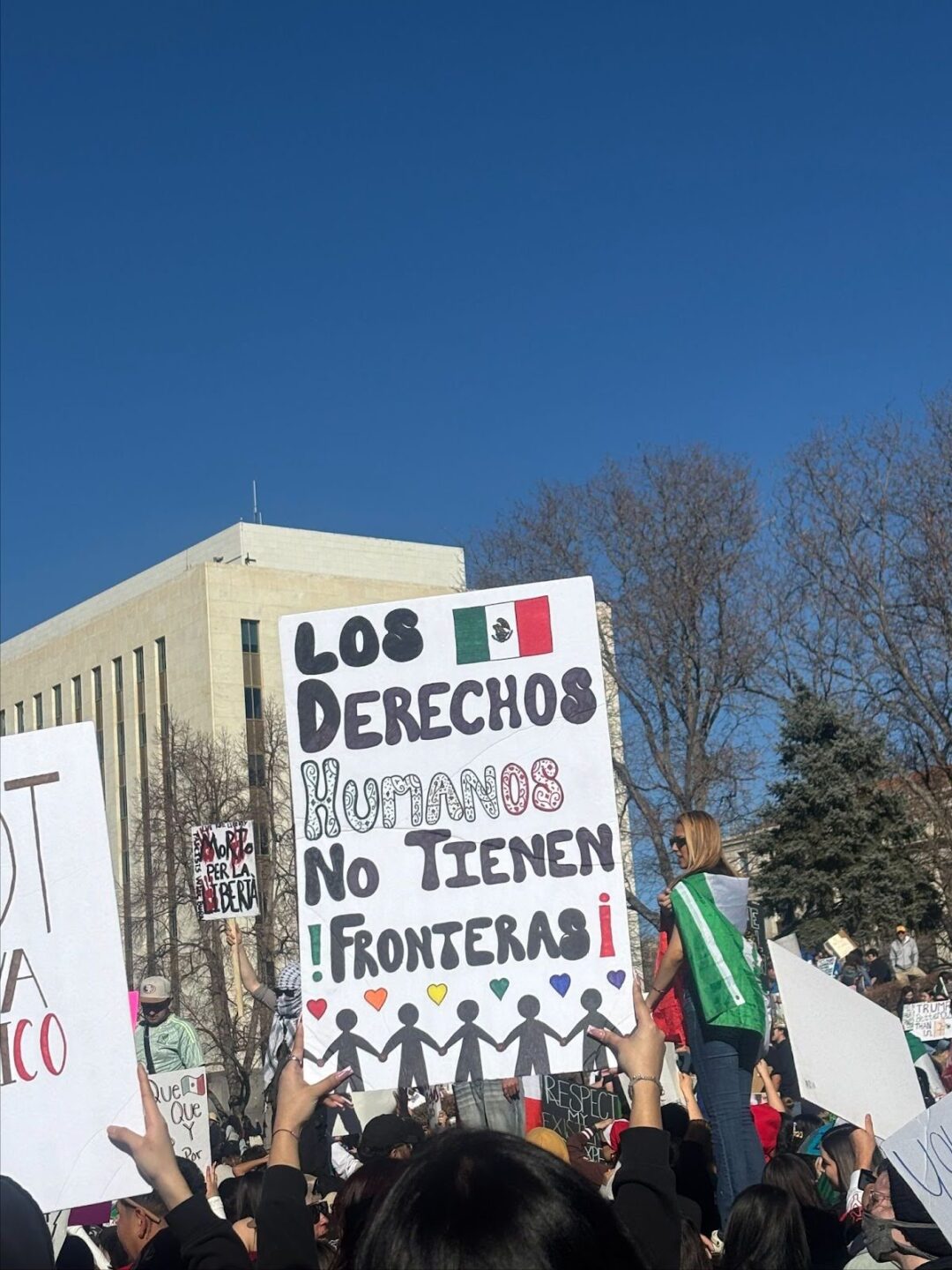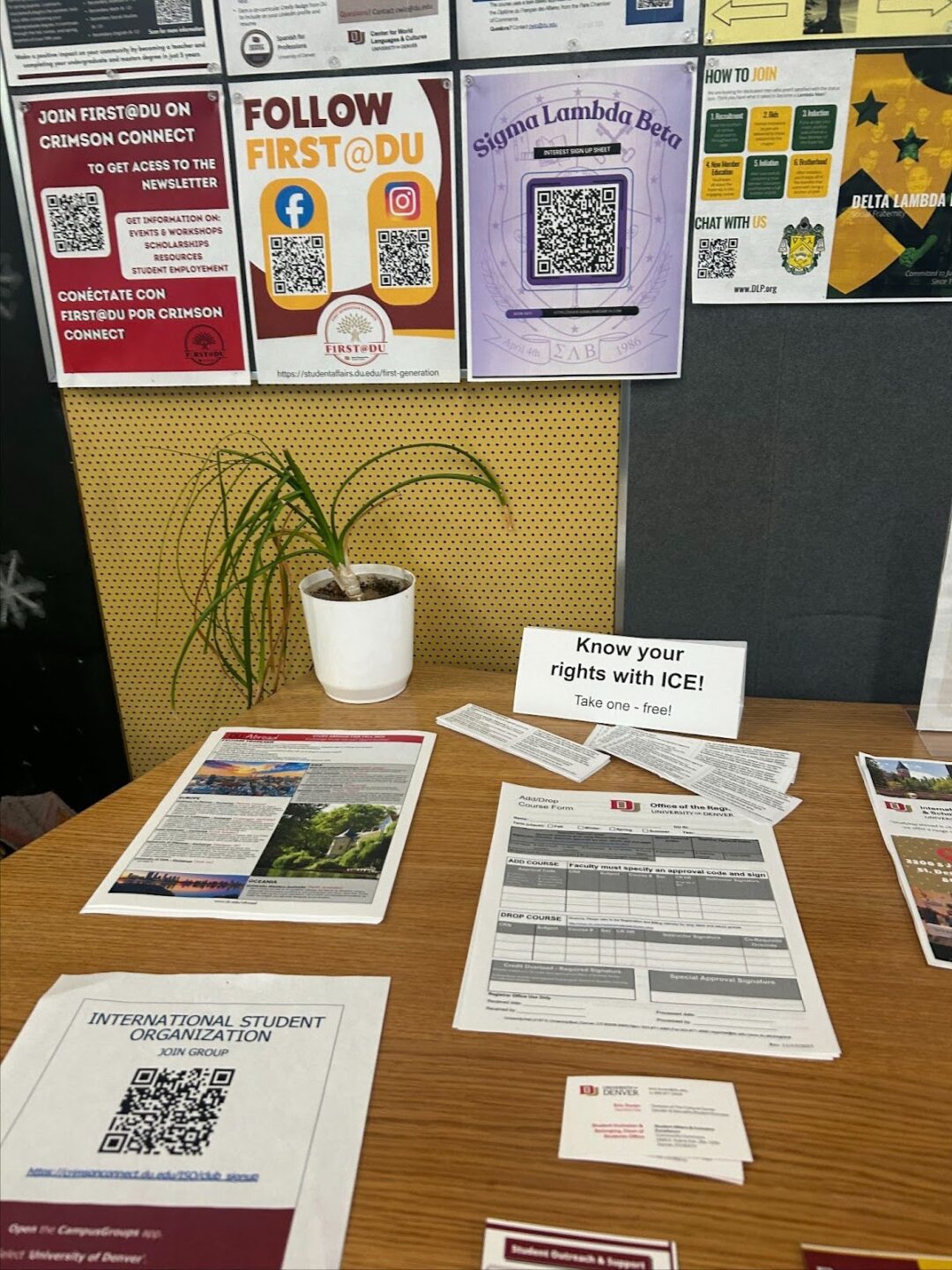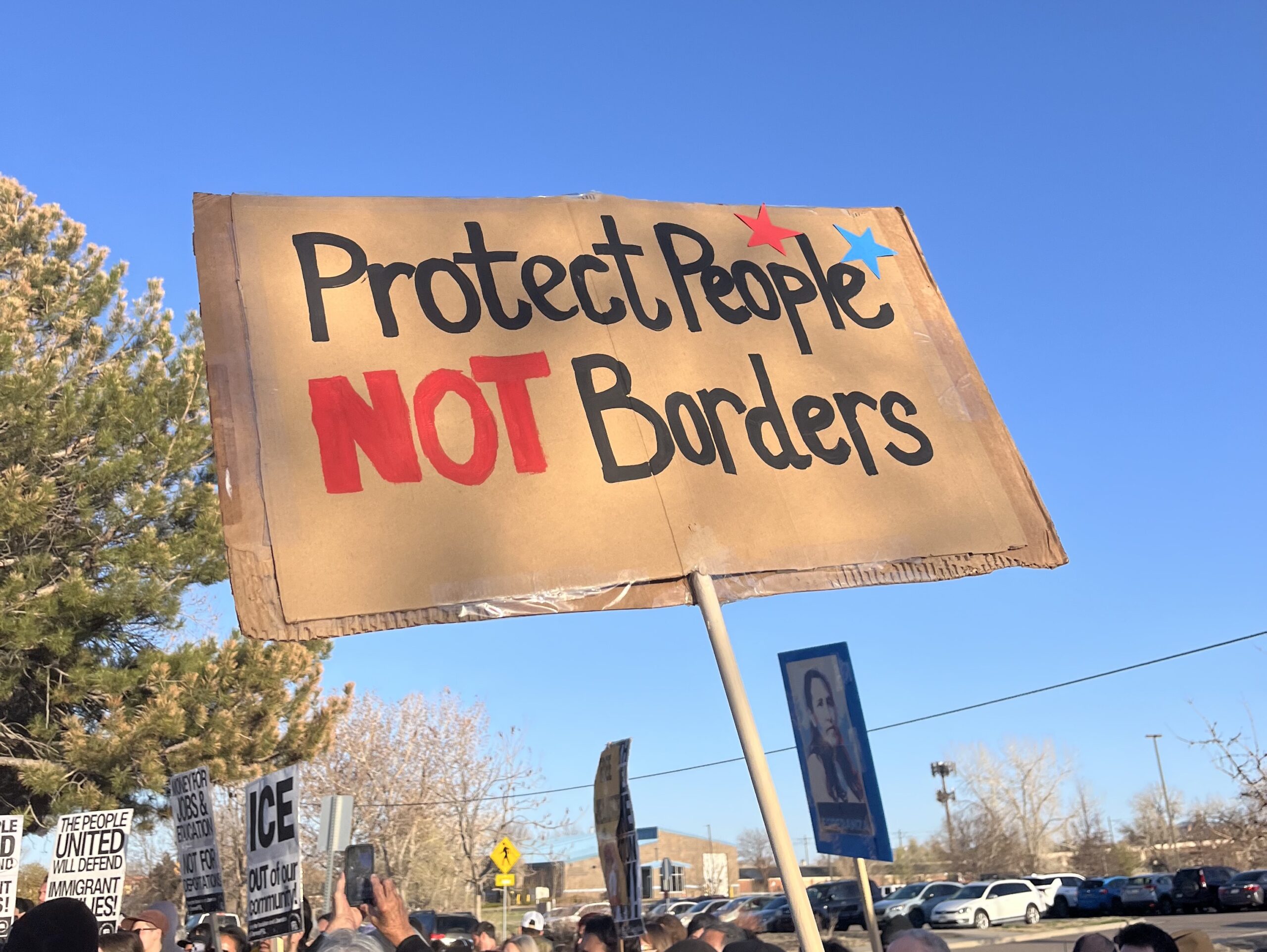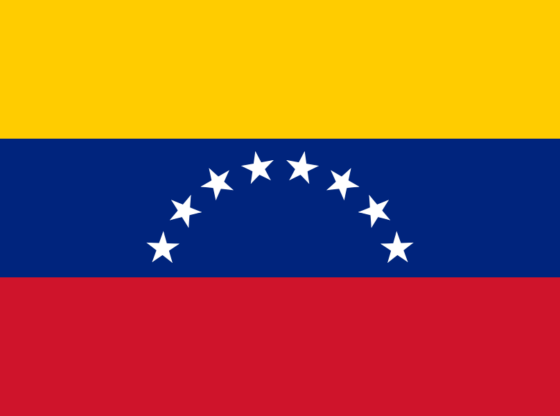During the first week of President Donald Trump’s second term in office, he signed dozens of executive orders, many of which affect immigration policies and the future of many people living in the United States.
Trump’s actions and promises to aggressively target immigrant communities have instilled fear across the country but have also encouraged people across the U.S. to strengthen community networks — a trend reflected at DU just as much as anywhere else.
This community solidarity and support of undocumented community members is most directly exemplified through the vast number of Latine affinity groups on campus, as well as other advocacy networks.
Unity without Borders, Latin American Indigenous Student Association (LAISA), Latine Student Alliance (LSA), IGNITE, Política Organizada por Diversidad, Equidad y Representación Latine (PODER) and the Association of Latino Professionals for America (APLFA) are some of the most notable registered student organizations (RSOs) that are providing spaces for solidarity and advocacy.
Second-year student and marketing director for LAISA, Reina Ortiz, expressed that it’s important to create these spaces of solidarity because there is a large population at DU being affected, even though they may not be the people who speak the loudest about their needs and struggles.
“It can be easy to forget that a lot of what is happening on the federal and state level does affect our community, even if it’s a smaller and quieter community… Here at DU, there is a population being deeply affected by this personally and in their families, so it’s important that they are just as supported by their institution as any other student,” said Ortiz.

A sign from a march at the capitol on Wednesday, Feb. 5, reading “tenemos que gritar por aquellos que callan por miedo” which translates to English as “we must shout for those who are silenced by fear”. Photo courtesy of Reina Ortiz
DU’s Center for Immigration Policy and Research (CIPR), in conjunction with Unity without Borders, was the first to release a statement about the importance of community solidarity and administrative support amid the new presidential administration’s policies on Jan. 22.
The statement critiqued the DU administration for their simple “words of support,” demanding more explicit resources for students and official statements that they will not comply with ICE on campus, regardless of potential policy changes.

Anahi Sanchez Corral, a third-year DU student, emphasized the importance of empathy, regardless of one’s connection to immigration.
“It’s clear that it’s not only immigrants who are protesting, but anyone who has empathy for immigrants, and just because someone doesn’t have the privilege to avoid these complex situations doesn’t mean we shouldn’t have empathy for them. Privilege shouldn’t make us lose empathy,” said Sanchez Corral.
On Jan. 26, PODER, LSA, LAISA and ALPFA also released a collective statement to the DU community titled: “Solidarity over Fear: Condemning Anti-Immigrant Rhetoric and Policies.” Their statement outlined their values, emphasized the need for solidarity and condemned specific executive orders by highlighting their ethical concerns. The statement finished with an affirmation of hope and solidarity, as well as a list of immediate resources for affected community members.
On Jan. 6, DU released a solidarity statement titled Support for our International Immigrant Communities, signed by Chancellor Jeremy Haefner, and on Jan. 28, another statement titled Uncertain Times Resources of Support, signed by various administrators. More recently, on Feb. 14, a statement titled Federal Directives Update was released by Chancellor Haefner. All of these statements articulated the complicated position of the University in navigating the ties they have with federal institutions while upholding its values of diversity and inclusion. The statements also highlighted resources, including ‘Know Your Rights’ workshops, dedicated pages on the university’s website and guidance for students and employees to seek assistance from the Office of General Counsel if approached by immigration agents.
Despite these statements, there seems to be a disconnect between their communication and what the community is hearing. Representatives of affinity groups have expressed dissatisfaction with the resources and communication provided by the administration thus far.
“DACA recipients are a part of this campus and they have a big impact within our community. The administration [should be] providing resources for [DACA] recipients to know that, within a classroom, they’re able to feel safe,” said Leon.
On Jan. 30, LAISA, IGNITE and PODER Latine co-hosted a “Know Your Rights” workshop. They covered how to interact with ICE, what rights apply to all people in the U.S., the different warrants and what they mean, and they provided more resources for additional information and support.
“The intent was to bring [information] to students who were interested in behalf of themselves or their family and just to know that there’s other people who are facing the same fears and worries,” said Ortiz, one of the main organizers of the event.
The event also reminded attendees of the importance of being vigilant about ICE in our communities and explained what to do in case anyone sees ICE or a raid. The event encouraged attendees to call the Colorado Immigrant Resource Center at 1-844-864-8341 if they see ICE, record the interactions and share them with a timestamp and location. If you see a raid, they recommend calling the United We Dream Hotline at 1-844-363-1423.
On Feb. 3, many students, including Sanchez Corral, participated in the nationwide movement called “Un Día sin Inmigrantes,” in English “A Day Without Immigrants.” A day where immigrants and those in solidarity with the community were encouraged to stay home from work, school and other obligations and abstain from any purchases.
“The idea is to halt the country economically as much as physically… As young people, we have more opportunities to participate in these movements on behalf of the generations that can’t, the people that can’t,” said Sanchez Corral.
Both Ortiz and Leon also expressed that immigration is an extremely intersectional issue, and having legal status is all the more reason to advocate for immigrant rights and representation.
“Overall, citizenship status is such a privilege, and a lot of us don’t think about that every single day, where[as] a lot of our community members have to constantly have a plan for if they get deported,” said Leon.
This similarly reflects the nature of the weekly protests and organizing meetings that have been hosted by the Colorado Immigrant Rights Coalition (CIRC) and the Denver branch of the Party for Socialism and Liberation (PSL). These intersectional events keep immigrant rights front and center while also bringing together the LGBTQ+ community, people of color and other minoritized communities.
Bringing together neighbors from different walks of life is a key part of community care and building solidarity, both on a broader scale and on DU’s campus.
“Immigrants themselves are a huge part of the global population that tend to be abused, exploited, harassed and killed, and the only way to start creating protections for them outside of the law is to lean into people who care enough about you as a person, and that happens across affinity groups, across advocacy groups, with faculty members, staff, etc.,” said Ortiz.
This sense of community has been articulated through a variety of events that PODER Latine has hosted throughout the past few weeks, including a “Cafecito y Charla,” meaning: “Coffee and Chat” in English on Feb. 10 and a Valentine’s Artisanal workshop on Feb. 17.
“[PODER] wants to bring people together in community and provide a safe space… [prioritizing] the importance of consolidating community rather than dismantling it like the Trump administration is trying to do,” said Leon.
Organizers involved in these events affirm that they will continue to advocate, educate and do their part and encourage other DU students to do the same. This means staying up to date on current events, local, state and national policies, showing up to events to show solidarity and raising awareness about these issues to the people around you.
“Be informed because even if it doesn’t affect you personally, it does affect a lot of the community both at DU and Denver at large,” said Ortiz.

A sign from a march at the capitol on Wednesday, Feb. 5, reading “los derechos humanos no tienen fronteras”, meaning in English: “human rights don’t have borders.” Photo courtesy of Reina Ortiz

‘Red Cards’ with know your rights information are being distributed across campus in various offices, including the Office of Academic Advising (CCOM 3100). Photo courtesy of Ellie Barnett-Cashman











